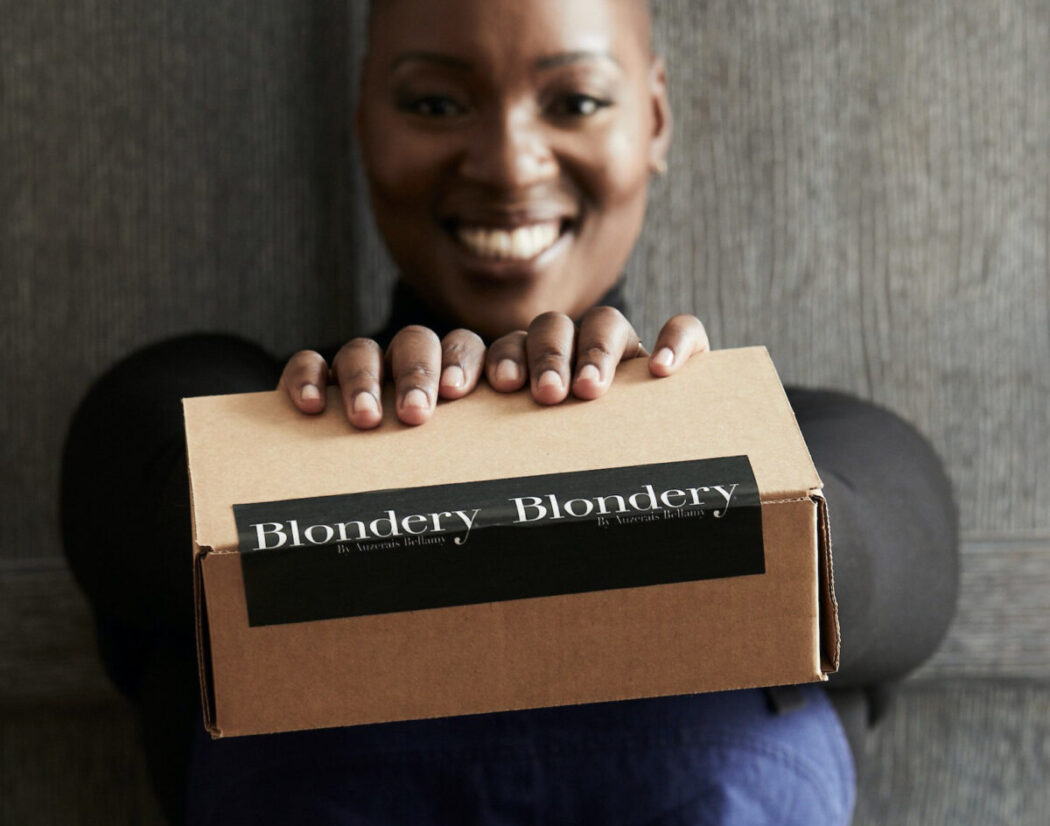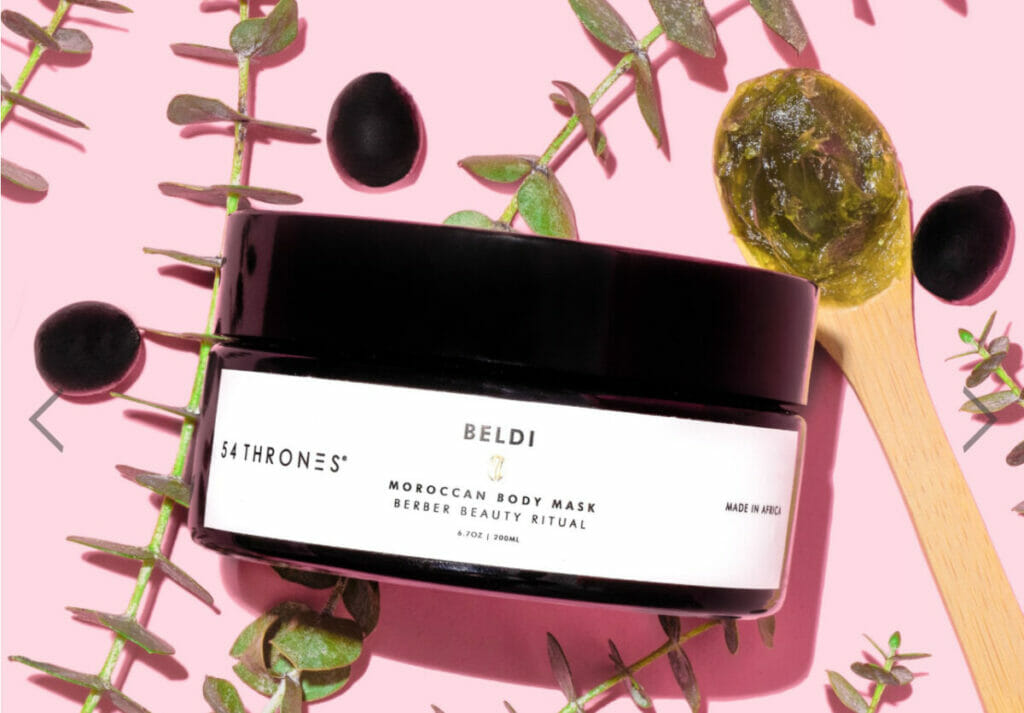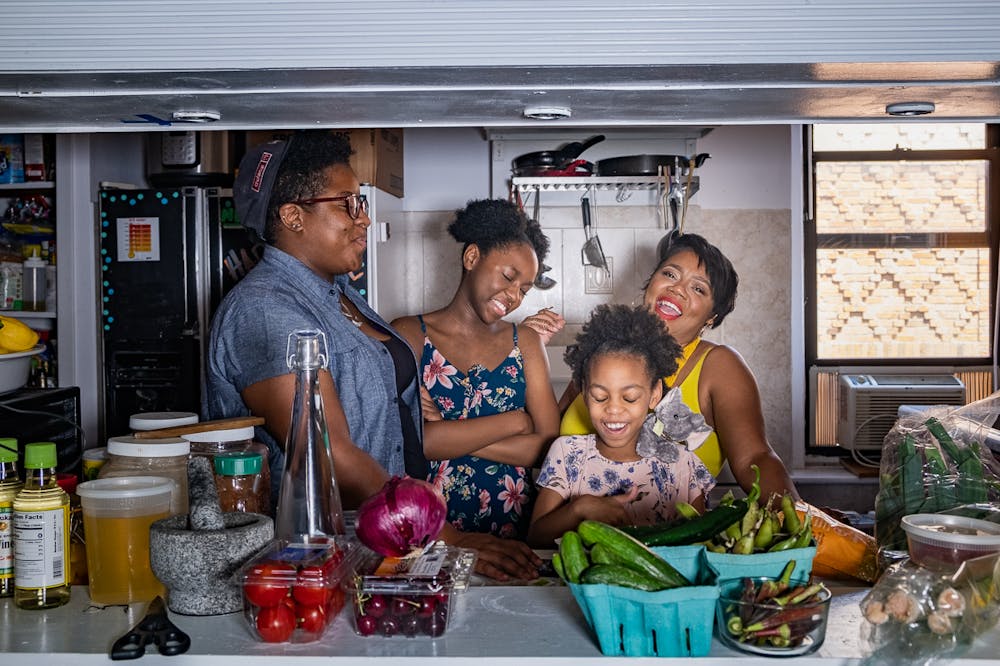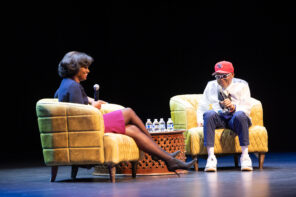Supporting Black and Minority-Owned Businesses
Readers delight, because these women are making products we can use every day.
As 2021 begins, we wanted to take a moment to celebrate the many women in business who are making a difference by the products they create, the messaging of culture and community they offer, and the thoughtfulness put into bringing unique products to market. In order to do that, we wanted to take a look at the facts and figures, and the challenges women-in-business face in the United States.
Women, especially minority and Black women, have been marginalized in American society. That is also true of minority and Black women in business. To understand why that is, understanding how minorities and Black Americans are represented in business is key. Minorities make up 32 percent of the American population, but only 18% of those minorities are business owners. The Minority Business Development Agency (MBDA) noted in a recent report that, “Even though the number of minority-owned firms has grown by 35 percent, the average gross receipts for those firms dropped by 16 percent.” The disparity in growth is a reflection of minority and Black-owned business owners not having equal access to capitol, financing, investment, and entrepreneurial development opportunities.
There are now more than four million minority-owned companies in the United States, with annual sales totaling close to $700 billion.
— Source: U.S. Senate Committee on Small Business and Entrepreneurship, 2020
When it comes to minority women in business, the U.S. Census Bureau shared a study that of the 1.1 million employer firms owned by women, 1.0 million of those were owned by minority women. There are 4 million minority-owned businesses in the United States which means one-in-four minority businesses are run by women, and according to the U.S. Senate Committee on Small Business and Entrepreneurship as the number of businesses in our minority communities continue to grow, it adds to the U.S. competitive advantage. In the past 10 years, minority business enterprises have accounted for more than 50 percent of the two million new businesses started in the United States, creating 4.7 million jobs.
When looking further into the number of women-owned businesses, particularly for women of color, the numbers are disproportionate when compared to that of their male counterparts. While Black-owned businesses in the United States account for two million businesses according to fundera.com, 35% of those are owned by Black women.
The study cites that while the number of startups launched by Black women is very small (4%), Black women are far more prominent in the small business world, owning 8% more small business than other female-business owners of other racial identities. Although Black women are well-represented among business owners, they earn a disturbingly lower income than other female business owners.
The Fundera.com 2020 study found that Black women-owned businesses earned an average of $24,000 in net revenue, compared to $142,900 among all women-owned businesses. That is an enormous and problematic income gap, especially considering that Black-owned businesses generated $150.2 billion in gross revenue as recently as 2012. In that same vein, Black business owners receive less business financing, less often, and at higher rates. Fundera.com talked to Black business owners and 37.9% say they are “discouraged” from applying for loans.
In a report published by American Express however in 2019 on the state of women-owned business, it showed that the growth rates of several key metrics for women-owned businesses showed continued progress when compared to all businesses over the past five years (2014-2019).
- The number of women-owned businesses increased 21%, while all businesses increased only 9%.
- Total employment by women-owned businesses rose 8%, while for all businesses the increase was 1.8%.
- Total revenue growth of women-owned businesses was about the same as for all businesses: 21% and 20% respectively.
While there is growth among women-owned businesses, there are inequities that need addressing. Women get charged higher interest rates—just for being women. Women, on average, pay 6.4 percentage points and 5.4 percentage points higher rates for personal loans and short-term loans, respectively, than male entrepreneurs do.
That has to change.
When the numbers are so starkly laid out, racially and ethnically diverse women-owned businesses on-the-whole represent an uncanny disparity of access to resources and opportunity. So what can we do? Fight for fair business practices, equal opportunity (including equal access to capitol, investors, and entrepreneurial opportunities), incentivized plans supporting more racially and ethnically diverse women-led businesses, and spend your dollars with those brands, products, and businesses.
If we want change, we must demand it by consumer behavior and proposed policy reform that leans in favor of women in business, particularly racially and ethnically diverse women-owned businesses.
Progress happens when we support those who push the needle of progress forward.
Below are brands, companies, and products that are women-owned, racially and ethnically diverse, stand for the values we align ourselves with, and are instrumental in sharing culture and passion we find inspiring.
RETAIL
54Thrones| Founded by Nigerian born Christina Funke Tegbe, 54Thrones is a beauty brand inspired by the richness, diversity, and cultures of the African continent and its people. From body masks to detox body bars, 54Thrones is a line made of natural ingredients full of antioxidants, story, and heart.
[button content=”SHOP” color=”black” text=”white” url=”https://54thrones.com/” openin=”_blank”]
Yo Soy Afro Latina | Created by Bianca Kathryn, Yo Soy Afro Latina is a fashion brand empowering Black women within the Latin community to celebrate Afro-Latinidad in the Americas and validate the female experience. With its unique line of clothing, tees, mugs and accessories, Yo Soy Afro Latina aims to lift women up and encourage them to embrace their culture.
[button content=”SHOP” color=”black” text=”white” url=”https://yosoyafrolatina.com/collections” openin=”_blank”]
My goal is to shed light on the beauty and the magnitude of Afro Latinas, to create a space where we are acknowledged, and to celebrate our beautiful, diverse culture. — Bianca Kathryn
Lorraine West Jewelry | Created by Lorraine West, this line of handmade custom jewelry embodies the heart of independence, freedom, artistry and the beautiful pride of being a Black woman and entrepreneur, empowering others through her collections. Fashioned by symbology and geometric shapes, West’s manifestations of jewelry showcase beauty, depth, delicacy, and vibrance. Also available at 1stDibs.com
[button content=”SHOP” color=”black” text=”white” url=”http://lorrainewestjewelry.com” openin=”_blank”]
Mahogany Books | Launched in 2007 by Derrick and Ramunda Young to offer an online-only retailer specializing in books “written for, by, or about people of the African Diaspora.” They also have a compelling blog with staff picks and curated content @Black Books Matter.
[button content=”SHOP” color=”black” text=”white” url=”https://www.mahoganybooks.com/” openin=”_blank”]
Black Bright Candles | Founded by Tiffany Griffin and her husband Dariel, Black Bright candles is about meaning and purpose as much as it is about high-end, handmade candles. With a vision to create a world where the complexity, beauty, and brilliance of Blackness is widely known, recognized, embraced and celebrated, Bright Black Candles is a thought-provoking brand that sets itself apart.
[button content=”SHOP” color=”black” text=”white” url=”https://brightblackcandles.com/pages/shop” openin=”_blank”]
Bephie | Founded by Union co-owner Beth Birkett, the reason behind the brand is represented thoughtfully throughout the gender-neutral garments inspired by feminism and born of the Black Southern California experience. The message Birkett gives to the vision behind the brand is, “Bephie embraces multicultural beauty, gender fluidity and new aging in cosmetics and personal care. It’s not just about style—Black consumers have influence and aren’t afraid to use it for good … I know from personal experience the influence these consumers wield over public discourse on social media and other platforms. So, African Americans hold quite a bit of leverage over companies from all industries,” says Birkett.
[button content=”SHOP” color=”black” text=”white” url=”https://bephiesbeautysupply.com” openin=”_blank”]
Frēda Salvador | Founded by best friends Cristina Palomo Nelson and Megan Papa, Frēda Salvador is a footwear and accessories brand with a focus on the feminine spirit and sustainability. The duo have a combined 25 years of experience in footwear and accessory design. Each product is made to be lived in and worn every day, is designed in California and handmade in their family factories in Spain and El Salvador.
[button content=”SHOP” color=”black” text=”white” url=”https://fredasalvador.com” openin=”_blank”]
THE FRĒDA GIRL IS BOLD, AMBITIOUS AND INCLUSIVE. HER SPIRIT IS LOUDER THAN HER VOICE. SHE DOESN’T ASPIRE TO BE, SHE IS AUTHENTICALLY HERSELF.
FOOD
Food + People | Chef-community builders Mavis-Jay and Sicily Sierra set out to uplift Black food stories, culture and heritage from a place of joy and resilience. And that means, in part, making delicious hot sauces and a sweet and smokey dry rub and other mixes, available to all.
[button content=”SHOP” color=”teal” text=”white” url=”https://www.foodpluspeople.com” openin=”_blank”]
Quality food is a human right, not a luxury. — Mavis-Jay and Sicily Sierra
Blondery | Founded by pastry chef Auzerais Bellamy, Blondery is a direct-to-consumer virtual bakery that specializes in handmade blondies inspired by generosity. Blondery is more than just a divine pastry company, Bellamy is making the profession a better place for women and people of color. Baked to order in Brooklyn and shipped nationwide.
[button content=”SHOP” color=”teal” text=”white” url=”https://blondery.com” openin=”_blank”]
Shaquanda Will Feed You | Artist Andre Springer launched her hot sauces career unintentionally in 2012 at an event called Bushwig. “This fabulous one day party was all about drag, expression, music, love and laughter. It was there that I released a new performance, by taste, Shaquanda’s Hot Pepper Sauce.” An homage to her Barbadian culture, this hot sauce line consists of five flavors.
[button content=”SHOP” color=”teal” text=”white” url=”https://www.shaquandawillfeedyou.com/collections/frontpage” openin=”_blank”]
Fauzia’s Heavenly Delights | Founded by Fauzia Abdur-Rahman, a well-loved NYC street food vendor, Heavenly Delights was inspired through her work with Hot Bread Kitchen, an organization that helps immigrant women incubate businesses. Fauzia’s Jerk Seasoning is a nod to life back home in Jamaica made with her secret sauce, and a balance of scotch bonnets, vinegar, herbs and spices.
[button content=”SHOP” color=”teal” text=”white” url=”https://www.fauziasheavenlydelights.com” openin=”_blank”]
Alaya Tea | Created by environmental journalist and a climate policy expert Esha Chhabra and Smita Satiani, Alaya Tea is call for kindness and slowing down. Made in the eastern Indian state of West Bengal in Darjeeling amid the Himalayas by women Chhabra and Satiani refer to as the bounties of nature, Alaya is more than just flawlessly made tea; It is a mindset celebrating women of Darjeeling and the beautiful terrain.
[button content=”SHOP” color=”teal” text=”white” url=”https://alayatea.co” openin=”_blank”]
Basbaas Sauce | Created by Somali-born model Hawa Hassan, who fled to America with her mom from the Somalian Civil War when she was seven, the company tells her story, and those of her mother and grandmother, through the flavors of her sauces. She has also just released her first cookbook, Bibi’s Kitchen now available on Amazon.com, BarnesandNoble.com, and Target.com
[button content=”SHOP” color=”teal” text=”white” url=”https://instagram.com/basbaassauce” openin=”_blank”]
McBride Sisters Wine | Founded by half-sisters Robin and Andréa McBride, who were reunited after living much of their lives 7,000 miles apart, their passion for wine became their business. McBride Sisters Wines is the largest Africa-American-owned wine company in the nation. Check out their #BlackGirlMagic and #SheCan blends made in California.
[button content=”SHOP” color=”teal” text=”white” url=”https://www.mcbridesisters.com/” openin=”_blank”]
Maryiza | Created by NGO consultant Ariana Day Yuen, once she tasted raw honey harvested from the local Geteme trees in the Geret Forest located in the Afromontane region of Southwest Ethiopia, it was like nothing she’d ever had. With elements of fresh flowers and citrus, this chewy honey is how it began. Now Yuen works with smallhold forest farmers producing four single-tree honeys under her brand, Forested Foods whose mission is to, “combat deforestation, conserve biodiversity, and increase incomes for forest farmers invested in regenerative agroforestry.”
[button content=”SHOP” color=”teal” text=”white” url=”https://www.maryiza.com/” openin=”_blank”]
450 Black-owned Wellness Brands | Giving Broadly | 86 Latinx Brands










2 Comments